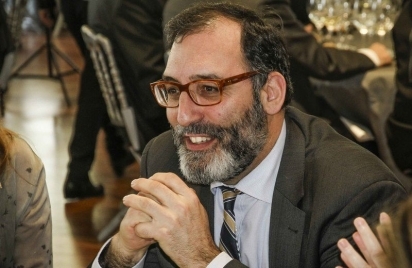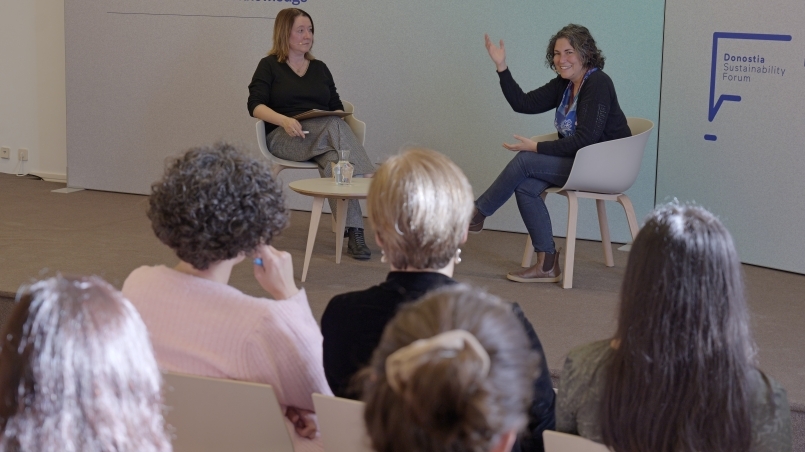It is necessary to strengthen judicial guarantees in the use of Artificial Intelligence
<p> Eloy Velasco, Magistrate of the National Court of Spain will participate in the Summer Course about "Crimes against minors and women in social networks: how they are investigated and how to protect victims", to discuss the new tools that are available in the arrest of criminals.</p>

The traceability of blockchain applied to justice brings and facilitates communication and work in international cooperation. European investigation orders, letters rogatory or extraditions have enormous security.
Judges advocate the use of AI for the arrest of criminals with the facial recognition tools that already exist. "Sometimes we have the image of the person who has sexually assaulted a minor but we don't know who he is and we have to look for him like a needle in a haystack to identify him. The same happens with the images that may be present in a murder or robbery. AI makes it possible to contrast these faces with the database in an unquestionable way.
In other cases, such as that of the father from the Canary Islands who kidnapped his daughters, "we have his face and we know who he is. If he were alive, because without a corpse we have no proof that he is dead, through many online databases and the cameras installed in the cities we could locate him. If he turned up alive, he could be identified through the 120 face nodules measured by the AI."
The European Union is curtailing the use of this biometric identification. "the technology is very privacy invasive because it goes over the faces of thousands of people and has to "disturb" the freedom of image of non-suspects. In no other area as in this one is it necessary for judges to validate or not the actions of the police forces. The work of the AI and the police must always go through a judicial check, before the evidence goes to trial.
In Europe, having very similar legal standards, we have instruments such as the European Investigation Order by which an action of a judge in Poland is valid in Spain by the so-called "mutual recognition" between the 27 countries of the EU. "I consider it more complicated between countries that do not belong to the Union, but if we check the standards of fundamental rights, this legal assistance could also be given."
For Eloy Velasco the fundamental idea is that "AI or blockchain are invasive technologies of fundamental rights but we should not be afraid of them. It is necessary to provide legal guarantees for the product obtained with their use. By passing through the filter of a judge and even a second instance between the courts we can banish the fear that is being generated in some spheres. It is true that the draft EU regulation is a bit restrictive and I believe that it responds to the fear that we jurists have of new developments. As we get to know the positives and negatives, we will be more inclined to use it. Now, it is important to focus on these guarantees and as there are pronouncements, especially from the Supreme Court of Spain or the Constitutional Court, that clarify under what circumstances these technologies can be used and under what circumstances they cannot, we will lose our fear and it will be easier to work with them. The same thing that happened with telephone tapping, GPS, microphones or virtual undercover agents.
"It is necessary to get excited not only with the technological growth but to imbue it with legal guarantees in its use. In what type of crimes due to their seriousness it is going to be proportional that they analyze our face or in what type of circumstances it cannot invade those fundamental rights"
Julián García Marcos, director of the course adds that the same thing happens "with the massive use of data from networks, telephone companies or Internet search engines. These are data that have started reaching the courts, which will have to assess whether their use represents a serious interference in order to use them as evidence".
During the course, other measures that are very "fashionable" will be analyzed, such as the use of microphones or data beacons relating to the location of people in the search for missing persons. The disappearance of minors is a very common phenomenon, and the use of new technologies in cases of this type risk is one of the topics to be addressed during the course, as well as the technological evidence obtained by citizens among themselves. What happens when a couple that is breaking up spies and records each other? What happens if a minor does it to support the father or mother? When a minor does it on another minor?
We will also study the possible crime of abusive use of personal data that can be made by large technological platforms. There are some sentences, but it is necessary to clarify "as a rule" the legal limits of the platforms that monetize data that are not theirs.

